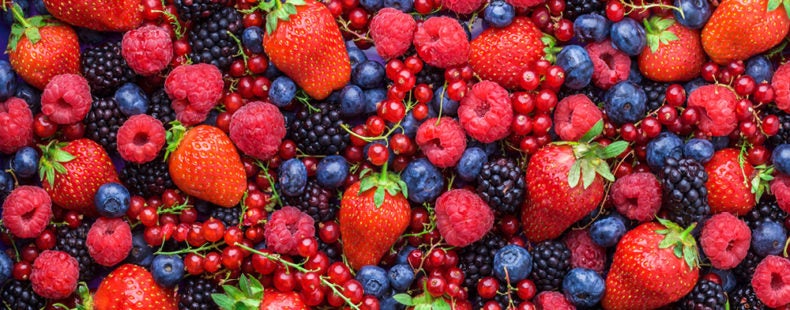One area of farming that has great potential but is not widely practised in Zimbabwe is the farming of berries. Several different types of berries wield tremendous nutritional and commercial value. In this article, I want to do an overview of berries farming in Zimbabwe and the prospects thereof. This will be more generalized but in subsequent articles, I shall look at the different types of berries separately. I took a look at strawberry farming before, kindly check it out here. Berries have immense value and tend to be premium priced when you see them in supermarkets and the like. They also have remarkable export value.
Why Farm Berries?
Some of the common types of berries are blueberries, strawberries, raspberries, blackberries, and mulberries. Berries are highly sought after because of their superior nutritional value. Berries typically have a much lower sugar content than most fruits. Literally, all berries are very healthy to eat and highly recommended by health experts. Berries have been shown to significantly reduce any risk of developing diabetes, heart diseases, and cholesterol-related issues such as obesity. Generally, people nowadays are so big on eating healthy and that is what makes berries particularly of high value. Europe is actually one of the biggest export markets for berries.
Highly Technical Field
Growing berries is a somewhat highly technical and usually long term field of endeavour. This stems from several reasons some of which are the fact that berries are generally very delicate fruits. That is why harvesting time and the logistical framework must be highly coordinated to avoid losses. Berries can last a few days under refrigeration so they must be transported immediately. Given how delicate they are it means they must also be handled with utmost care to avoid damages. This applies to when they are still growing, during harvesting, during grading and packaging, and their transportation.
This also implies that considerable soil preparations must be done. Disease, weed, and pest control are also indispensably important since the aim to come up with top quality fruits.
Overall, successful farming of berries is anchored on very strict and literally scientific approaches. Ideally, you want to push volumes yet at the same guaranteeing superior quality so it demands a lot. It would not be an exaggeration to describe berries farming as a complex farming venture. However, the returns on investment can be quite rewarding.
Yield And Maturation Characteristics
I will just look at two types of berries namely, blueberries and strawberries to paint a picture for you. On average, at least 6000 blueberry plants can be grown on one hectare. Blueberry plants can take as many as 3 years to get to a point where they can bear fruit in a sustained manner. When they get to around 6 years of age that is when they will be at maximum fruit production. The plants then reach their full growth size at around 10 years. No wonder I told you that farming berries are generally a long term farming venture or investment.
As far as yield is concerned, once the plants have reached maturity, you can expect on average, 4 kilograms of fruit every season. Supposing you have 6000 plants per hectare, that would be roughly 24 tonnes of blueberries per season.
Strawberries, on the other hand, can take about 1 year to start producing good fruit. However, that can happen even earlier – from around 3 months. The great thing is that once they start producing fruit you harvest fruit every season for 3 straight years. You can accommodate around 45000 plants per hectare. The average yield per strawberry plant is between 150 and 400 grams. This means you can realize between 6.75 tonnes and 18 tonnes per hectare per harvest, on average.
A Zimbabwean Case Study Worth Considering
If you are curious to check out some Zimbabwean players in the berries farming space, then Mushandi Holdings is worth mentioning. Mushandi Holdings is a diversified horticultural enterprise but they do have huge operations in berries farming. They have two farming sites, Home Farm in Macheke and Pinfields Farm in Ruwa.
Berries-wise they focus on strawberry and blueberry farming. They have 8 hectares under strawberries and 30 hectares under blueberries. Their berries are meant for both the local and export markets. They are formally accredited and actually have 4 certifications namely, GlobalGAP, Tesco Nurture, SMETA, and Albert Heijn. If you are interested in starting a berries farming enterprise, Mushandi Holdings is worth checking out. You can check them out on their website or possibly even visit the farms in person.
Maybe one of the reasons people are hesitant to pursue berries farming is because of the long term aspect. Probably the other issue is the relative complexity of farming berries. No wonder why not many Zimbabwean players are into the farming of berries. Regardless, I think we need more players and the prospects are huge for those who will dare to dive.








